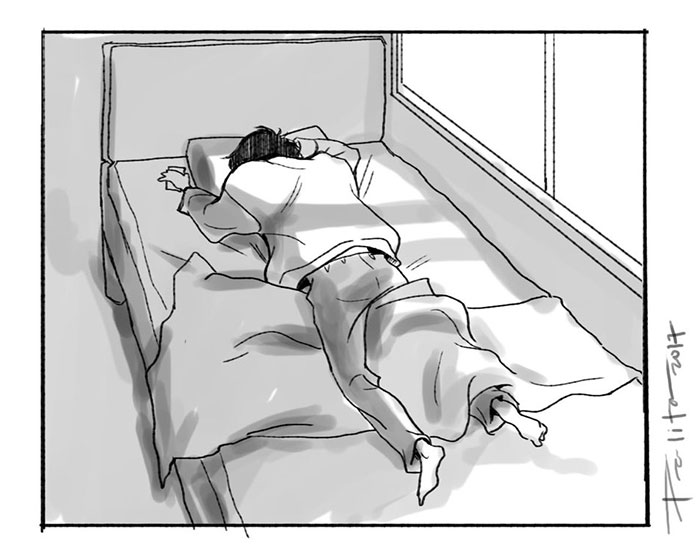1. Feeling Blue?

Mental Illness can mean a number of things; the most well-known mental illness is depression. The mood disorder can affect how one may view or feel about life. People that struggle with depression usually have a sense of hopelessness.
Depression can sometimes be a fatal case if not properly taken care of. It is a serious illness millions of Americans struggle with on the daily. Showing signs of depression may lead to more serious mental illness if not addressed with correct care.
2. Sticky Socks, Fuzzy Thoughts

Some people experiencing some sort of mental illness may describe their thoughts as 'fuzzy'. Detecting these 'fuzzy thoughts' early and finding the correct resources to help the individual are crucial. Ways of detecting these thoughts may include forgetfulness, lack of interest, confused thinking, and reduced ability to concentrate; Catching these symptoms early can help someone find the help they need.
3. Sleepy Eyes

We all tend to over sleep here and there, but those with a mental illness may sleep for extreme periods of times. If someone is sleeping pass meals or sleeping over ten hours, they may be experiencing some type of mental illness. Kicking them out of bed is not the answer, but finding the help they need to strive is. Finding this symptom may be easier to detect, due to the fact that it is an physical symptom rather than a emotional symptom.
4. Suicidal Thoughts
Suicidal thoughts may be one of the most serious signs. The thoughts usually indicate that the person no longer has the will to live; this can include wishes and contemplations. Someone may drop it as a joke or just slip it into a casual conversation, but these signs should not be taken lightly. If someone is describe suicidal thoughts, find the correct resources and get help.
5. Withdrawal from friends and family

Another sign of a mental illness is withdrawal from friends and family. If someone who normally is talkative and outgoing, one day begins to isolate themselves, this may be a sign. The person who is distancing themself may be experiencing a high level of emotional pain; they feel as if they will drag down anyone else around them. A symptom that goes hand to hand with withdrawal is a complete personality change. Usually, they may become more anxious or angry.
6. Mood Swings
Whether it is extreme or minor, mood swings can be another symptom to be on the lookout for. If someone is feeling happy one second then completely angry for no reason, this may be a sign of a mental illness. Finding this symptom early is ideal because it can lead to a serious mental illness such as schizophrenia or borderline personality disorder.
7. Substance abuse
Last but definitely not least, substance abuse. This can include but is limited to drugs and alcohol. This can be harmful in both long and short-term effects; someone may overdose or damage their body with these substances. Detecting if someone is abusing the substance may include their mood changing; them being more aggressive or dependent on the substance.